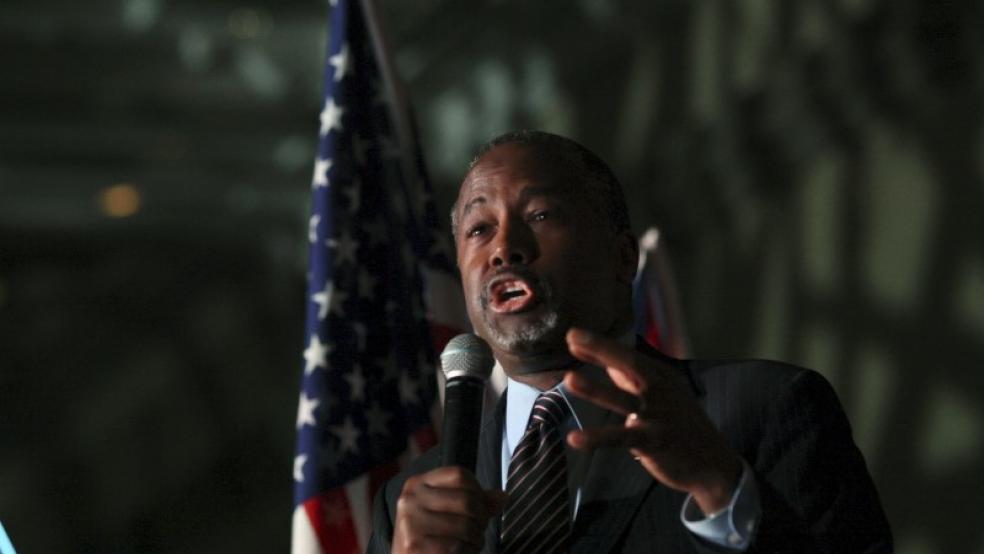One of the top foreign policy advisers to Dr. Ben Carson is a Central Intelligence Agency veteran with years of service in the field, much of it undercover. On Tuesday, the Carson campaign must have been wondering if the candidate’s adviser was, in fact, a double agent.
How else to explain why, at a moment when foreign policy in general and Middle East policy in particular has taken center stage in the GOP primary race, Duane R. Clarridge would give an on-the-record interview to The New York Times saying that Carson seems unable to absorb key details about foreign policy issues?
Related: 3 Reasons France Hasn’t Asked NATO to Fight ISIS
“Nobody has been able to sit down with him and have him get one iota of intelligent information about the Middle East,” Clarridge said of Carson in the explosive article published Tuesday afternoon.
On Sunday, after watching Carson stumble through a Fox News interview in which he appeared unable to name any U.S. allies willing to fight against ISIS, Clarridge told reporter Trip Gabriel that he called up Carson confidant Armstrong Williams and said, “We need to have a conference call once a week where his guys roll out the subjects they think will be out there, and we can make him smart.”
Williams himself seemed to express frustration, telling Gabriel, “he’s been briefed on it so many times. I guess he just froze.”
The article exploded across social media on Tuesday afternoon, driven largely by political reporters incredulous that anybody involved with a presidential campaign would go on the record blasting a candidate for being unable to grasp important foreign policy issues.
Related: Putin Doubles Down on Syria Bombing Campaign
Within hours, the Carson campaign was pushing back. A Carson spokesperson told Business Insider that the Times story had overstated the importance of Clarridge’s role with the campaign.
Clarridge is a longtime intelligence operative who was convicted of perjury in connection with the Iran-Contra hearings in the 1980s and then later pardoned. "He is coming to the end of a long career of serving our country,” the Carson spokesperson told Business Insider. “Mr. Clarridge's input to Dr. Carson is appreciated but he is clearly not one of Dr. Carson's top advisors.”
Carson’s campaign also criticized the newspaper, saying, “For the New York Times to take advantage of an elderly gentleman and use him as their foil in this story is an affront to good journalistic practices.”
This is the sort of campaign gaffe that is unlikely to be quickly forgotten. The ones that do the most damage are almost always those that reinforce a pre-existing narrative about a candidate — think of Rick Perry’s “oops” moment in the 2008 primary debates that, for many, confirmed that he wasn’t the brightest bulb on the Republican stage.
Even before Clarridge spoke to the Times, the biggest stumbling block between Carson and the GOP nomination was his apparent lack of detailed knowledge about serious policy issues. The Fox interview on Sunday followed a debate performance in which the former surgeon delivered a rambling and at times incoherent answer to a question about ISIS, which included the assertion that China is involved in the conflict in Syria.
Related: Funding for Syrian Refugees Could Spark a Big Fight in Congress
Having two of his advisers on the record complaining that he just doesn’t seem to retain information from foreign policy briefings is, to put it mildly, going to hurt.
That the story broke in a week when ISIS attacked the capital city of a major U.S. ally and the terror group promised that an attack on Washington, D.C. is imminent likely won’t help either.





